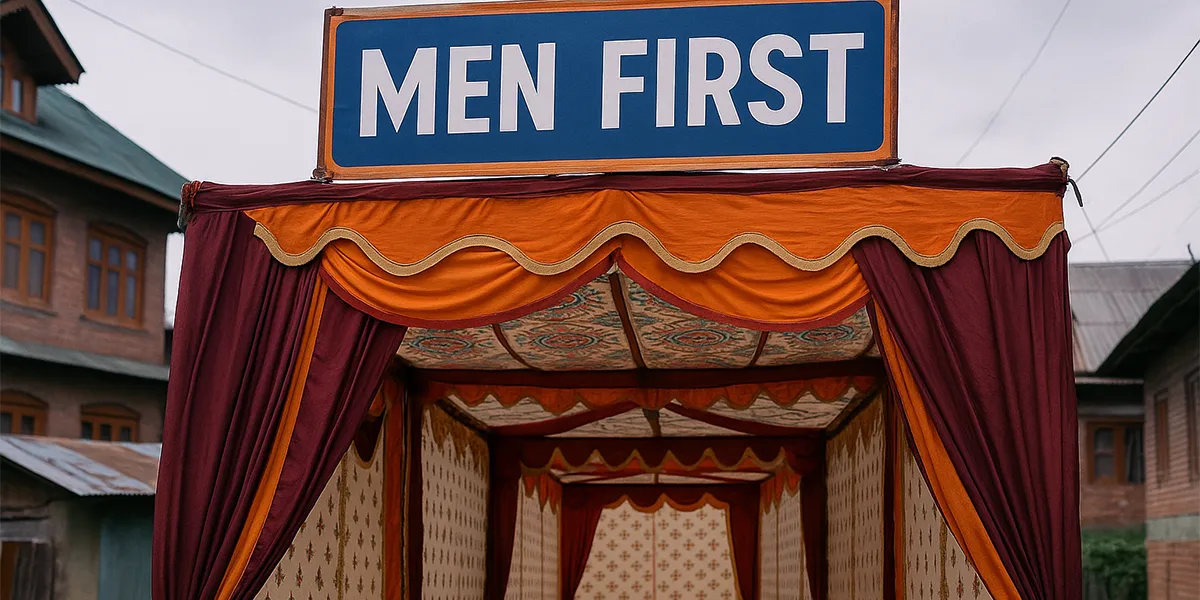Kashmiri Culture
Ladies First? Not Anymore — The Real Reason Women Are Served Late at Kashmiri Weddings
Once upon a time in Kashmir, the tradition of serving meals at weddings followed a simple, graceful rule — ladies first. Women were served before men, their plates filled with fragrant wazwan while laughter echoed through the wedding tents. But over the years, something quietly changed. Today, in most urban Kashmiri weddings, men are served first while women wait — sometimes for hours — before their turn arrives.
What caused this reversal? The answer, it turns out, is more cultural and practical than it is about gender politics.
A Shift Rooted in Time, Not Patriarchy
Many older Kashmiris recall a time when weddings ran like clockwork — lunch meant lunch, served precisely at one in the afternoon. The system worked because both men and women arrived on time. But as lifestyles changed, punctuality slipped away. Slowly, a pattern emerged: women, juggling multiple responsibilities at home or taking longer to get ready, often arrived late.
Hosts soon found themselves serving twice — once for the punctual guests, and then again for the latecomers. It became exhausting for those managing the feast. Over time, practicality won over courtesy: men, usually present earlier, were served first.
This evolution wasn’t born from patriarchy, but from logistics. Still, the optics — women waiting while men eat — gave it a symbolic weight that feels uncomfortable in a time where equality is more openly discussed.
The Cycle of Delay
Ironically, what began as a response to lateness has now become a reason for it. Knowing they’ll be served late anyway, many women no longer see a point in arriving early. This creates a self-perpetuating cycle — hosts serve men first because women are late, and women arrive late because they know they’ll be served later.
In the process, a cultural rhythm that once celebrated togetherness has turned into one of quiet division.
Village Weddings: A Different Story
Interestingly, rural Kashmir seems to have preserved an older sense of order and respect. In many villages, women are still served first — often right at lunchtime — followed by men an hour later. The simplicity of those gatherings leaves little room for chaos. Everyone knows the schedule, and everyone honors it.
The difference isn’t in gender, it’s in discipline.
Modern Weddings, Modern Challenges
City weddings today are grander, busier, and more complex. Guests juggle multiple functions, travel distances, and navigate social expectations. Women, in particular, manage a heavier pre-event load — getting children ready, preparing gifts, and attending to household duties before stepping out. By the time they reach the venue, the clock has already slipped past the scheduled hour.
But somewhere along the way, punctuality — once considered a mark of respect for the host — has been forgotten.
Redefining Respect and Responsibility
If equality is truly the goal, it must begin with shared responsibility. Being on time is not merely about etiquette; it’s a gesture of respect — for the hosts, the guests, and the culture itself. Respect can’t be demanded on principle while being neglected in practice.
Perhaps the solution isn’t to argue over who should be served first, but to restore the value of time itself. When everyone honors the schedule, the question of “ladies first or men first” simply disappears.
Bringing Back the Balance
The older generation often reminisces about weddings that began at noon and ended by dusk, where both men and women were served at their appointed hours — promptly, politely, and without fuss. Maybe the way forward lies in reviving that discipline, not through criticism but through conscious change.
After all, equality isn’t about who gets the first plate of wazwan — it’s about ensuring no one is left waiting unfairly.

